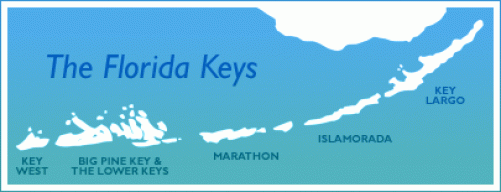
MONROE COUNTY, FL – Monroe County homeowners and renters impacted by Hurricane Irma have received more than $116 million in federal funding for housing, flood insurance claims and other recovery needs from the Federal Emergency Management Agency (FEMA).
FACT SHEET:
- Since Hurricane Irma struck the Keys on Sept. 10, FEMA has provided $56.3 million in grants to Monroe County homeowners and renters for uninsured damage to their primary residence and serious losses related to Hurricane Irma.
- Additionally, the National Flood Insurance Program, which is part of FEMA, has paid more than $60 million in flood insurance claims for Monroe County policyholders, according to preliminary data.
- As of Dec. 1, the Small Business Administration has approved $98.4 million in low-interest loans for residents and business owners in Monroe County. This includes 1,541 home loans totaling $82.8 million, 133 business loans totaling $11.8 million and 55 Economic Injury Disaster Loans totaling $3.9 million.
- About 16,000 Monroe County households have received FEMA grants, which can include money for temporary rental assistance, home repairs and other needs not covered by insurance, such as replacing destroyed personal property.
- About 9,000 Monroe County households have been provided with rental assistance money from FEMA. Many families received two months of rental assistance. This enables survivors to rent an available rental property and check out of hotels.
DISASTER RECOVERY CENTERS CLOSING SOON
- The three remaining FEMA Disaster Recovery Centers in the Keys are closing soon. If you need to meet in person with FEMA and the Small Business Administration, please take advantage of these centers while they are open.
- The Marathon location at 6805 Overseas Highway closes this Saturday, Dec. 9 at 3 p.m.
- The Key West location at 3126 Flagler Avenue closes this Saturday, Dec. 9 at 7 p.m.
- The Big Pine Key location at 30572 Overseas Highway is still open, but a closing date is expected to be announced soon.
- Until closings are announced, centers are open Mondays through Saturdays from 9 a.m. until 7 p.m.
- The Islamorada location closed permanently on Dec. 2.
HELP STILL AVAILABLE / STAY IN TOUCH WITH FEMA
Although the deadline to register with FEMA was Friday, Nov.24, you may continue to call FEMA to ask questions, update your contact information or request additional assistance by calling 1-800-621-3362 or visiting DisasterAssistance.gov.
Only one registration per household is needed. Hold onto your nine-digit FEMA registration ID number, so you can provide it if you need to get back in touch with FEMA.
CONTINUED RENTAL ASSISTANCE
People who still cannot live in their primary residence after two months of rental assistance may be eligible for continued rental assistance. Visit one of the FEMA Disaster Recovery Centers or call FEMA at 1-800-621-3362 to request continued rental assistance. Eligibility is determined on a case-by-case basis.
HOME INSPECTIONS / HOUSING
- FEMA has conducted more than 23,000 home inspections in Monroe County for assistance eligibility. About 99.3 percent of the eligibility home inspections have been completed. As more inspections are done, more FEMA grant money for uninsured losses, such as for home repairs, may be approved for survivors. This process can help more people move back home or find alternative housing.
- By law, FEMA cannot duplicate insurance payments. About 29,000 insurance claims have been filed in Monroe County, according to the Florida Office of Insurance Regulation’s Hurricane Irma webpage at https://www.floir.com/Office/HurricaneSeason/HurricaneIrmaClaimsData.aspx.
- As of today, people from about 430 Monroe County households who have uninhabitable primary residences and have encountered difficulty finding an appropriate place to rent are staying in hotels in FEMA’s Transitional Sheltering Assistance program. That number is down from a cumulative high of about 2,860.
- This temporary hotel program deadline has been extended more than once, based on survivor needs and rental property availability. Continued eligibility for each household is determined on a case-by-case basis, so the program’s check-out deadline may or may not apply to a specific household.
- Monroe County is working with charitable organizations on case management for the households in the temporary hotel program and other people who are displaced to help find them housing.
DIRECT HOUSING FROM FEMA
- As a last resort, 160 Monroe County households are staying temporarily in housing supplied by FEMA. This includes 139 households that have been licensed into temporary travel trailers, and 21 households that have been licensed into FEMA direct-lease properties.
- Part of the FEMA license agreement for a travel trailer requires the applicant to search for long-term housing options. Every 30 days FEMA evaluates each applicant’s eligibility to remain in the trailer.
- Survivors do not apply for a travel trailer or direct-lease property. FEMA will call survivors if they are eligible for direct housing.
STEP PROGRAM UPDATE
- Another program activated in Monroe County is called Sheltering and Temporary Essential Power (STEP). Monroe County is receiving $10 million for this program that provides up to $20,000 in temporary emergency repairs, so survivors can remain in their homes while more permanent repairs are made.
- To date, 199 households have registered for the STEP program. Already, 50 households have had inspections and have been approved. Construction for some of these households is expected to begin next week.
- There is still time to sign up for the STEP program. The hotline is 1-800-960-5860. Information about the STEP program and forms to fill out also are available on the Monroe County website at: http://www.monroecounty-fl.gov/index.aspx?NID=728.

